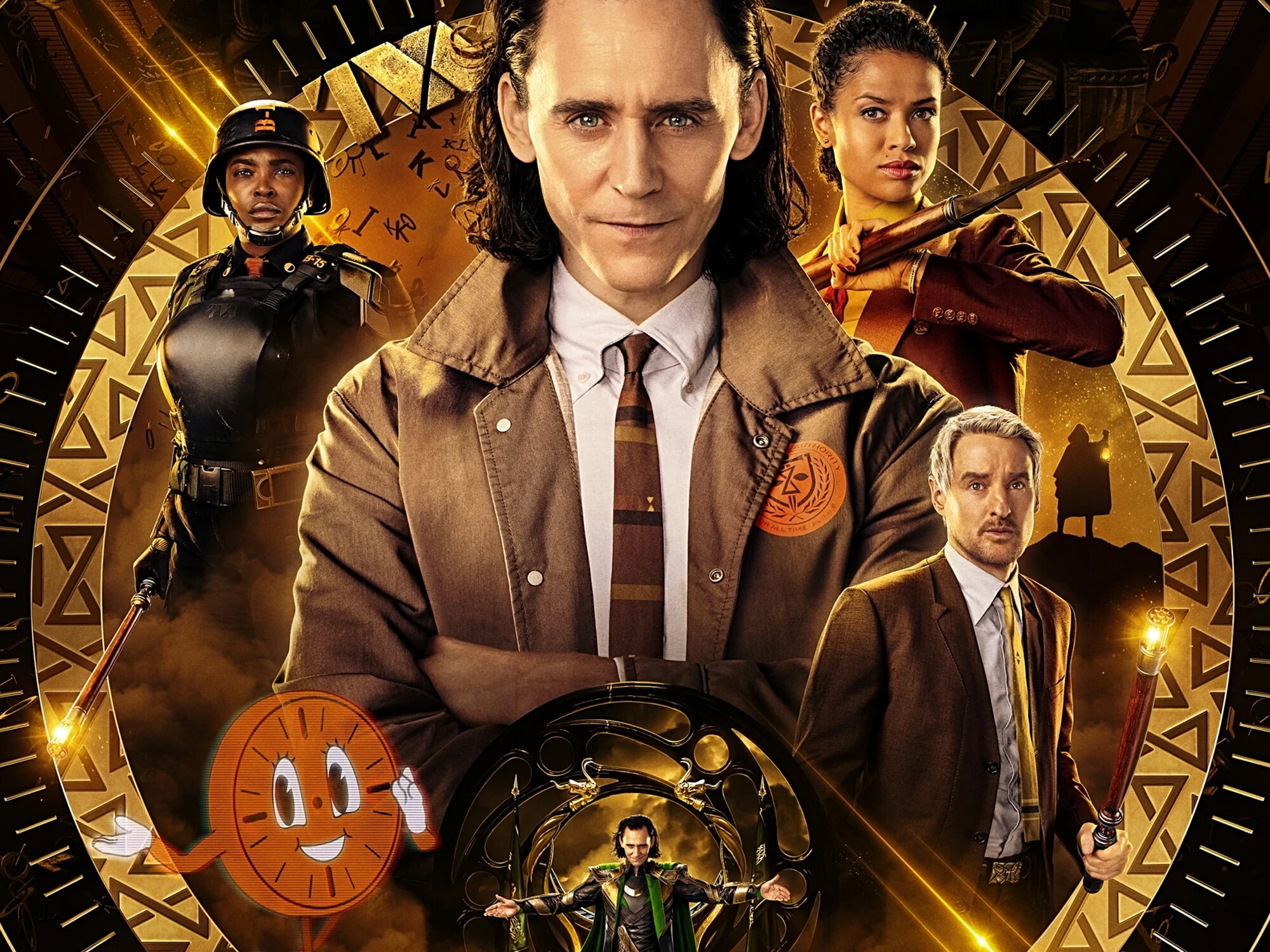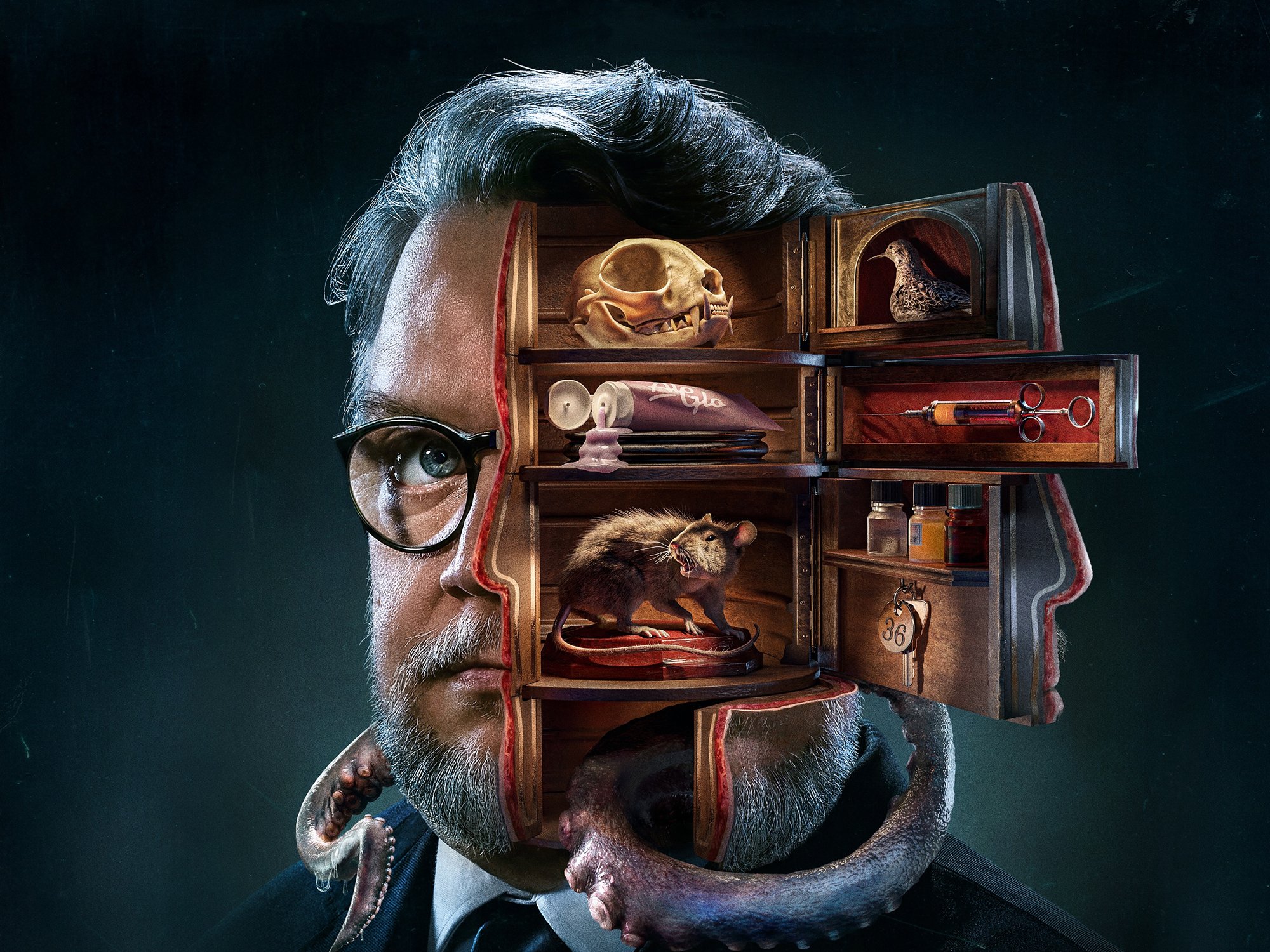TV Review: Loki
The weird and wonderful Loki digs deep on the MCU’s most interesting anti-villain
Clever and imaginative, Disney Plus’ latest Marvel series - Loki - brings the beloved scoundrel back to life. This new story takes the God of Mischief out of his element on a rousing, time-hopping, sci-fi adventure, diving deeper into his mercurial psyche while also expanding the weirder corners of the Marvel Cinematic Universe. Two episodes watched for review. Minor spoilers ahead…
Loki Laufeyson (Tom Hiddleston), Asgardian God of Mischief “burdened with glorious purpose,” has always been one of the Marvel Cinematic Universe’s most fascinating characters. A fickle trickster vacillating in the frequencies among outright villain, troublemaking snake-in-the-grass, and reluctant hero, Thor’s wayward brother has a signature unpredictability that is a large part of his charm and popularity. But what are Loki’s motivations? What makes him tick? Within the larger scope of the MCU, across six films, Loki’s protean sensibilities have never depicted him as a true agent of chaos, but rather, as whatever the story requires of him at the moment. 2011’s Thor depicted a tragic figure whose villainy stemmed from his daddy issues and a secreted-away lineage, while his most menacing stint as big bad of The Avengers has since been retconned to be the result of mind control. Even his later turns of fleeting heroism, in Thor: Ragnarok and Avengers: Infinity War, are written in convenient shorthand.
Loki, Disney Plus’ third Marvel series after WandaVision and The Falcon and the Winter Soldier, aims to distill its title character to his core, to dig deep into his freewheeling mischievousness and perhaps give some insight into his often murky motivations. And for the most part, the first two episodes set a rock-solid foundation for the series to do so: Loki is perhaps darker and more pensive - rife with explorations of determinism, fatalism, and philosophy - than you would expect. But it’s also wrapped up in the equally-compelling veneer of a sprawling, sci-fi adventure that takes us well beyond the confines of the Marvel Universe we’ve witnessed thus far.
“Loki is perhaps darker and more pensive - rife with explorations of determinism, fatalism - than you would expect.”
Unlike WandaVision’s “mystery box” storytelling or The Falcon and the Winter Soldier’s attempt at tackling the heavily timely themes of race and politics - which were both promising but also immediately had me questioning their narrative economies’ ability to pull them off - Loki roars out of the gate fully-formed. Plucking our titular trickster out of the botched time travel heist of the Tesseract in Avengers: Endgame, Loki circumvents his ignominious death at the gauntlet-clad hands of Thanos. And it’s a testament to Loki’s finesse and writer Michael Waldron’s punchy, economical script that the resurrection doesn’t feel cheap: Loki escapes with the Tesseract, but is immediately apprehended by the mysterious TVA, or Time Variance Authority. Overseen by the seemingly omnipotent Timekeepers, the TVA is a reality and time stream adjacent task force whose sole purpose is to eliminate threats to the timeline. After some signature shenanigans and charming maneuvering, Loki is given a choice by TVA agent Mobius (Owen Wilson, making his MCU debut): be eradicated from the timeline completely, or help him track down a mysterious threat ambushing their agents and unraveling the space-time continuum.
Loki is the most gorgeous and lived-in of Marvel’s Disney Plus slate. With director Kate Herron and production designer Kasra Farahani at the helm, the show revels in a fully-realized world: An awe-inspiring mix of authoritarian Brutalism and 1960s-inspired retro-future, the TVA is the perfect mix of Kafka and whimsy. Loki also pulls its disparate pop influences into a cohesive whole that feels like its own thing; the series seamlessly blends its high-concept setting with its Doctor Who and X-Files-esque procedural elements, while still injecting the flavor and continuity of the Marvel Universe. But for the most part, Loki is divorced from the ubiquitous fallout of Infinity War and Endgame, and the series dares to expand the walls of the MCU beyond what’s known to give us a closer look at its cosmic underpinnings.
“Loki is divorced from the ubiquitous fallout of Infinity War and Endgame, and the series dares to expand the walls of the MCU beyond what’s known to give us a closer look at its cosmic underpinnings.”
However, even with its winsome aesthetics and meticulous world-building, the characters remain the engine under Loki’s hood. Tom Hiddleston, as usual, is his charming self as the God of Mischief, only brought down a few pegs. The series’ first two episodes aren’t afraid to dig a little deeper into Loki’s psyche, lending some consistency to the character that was lacking before; Hiddleston, finally in the spotlight, gets the chance to make his character whole, and he relishes in the opportunity to wear all his hats: From petulant schemer to wily pretender to indentured anti-villain, Loki feels complete for the first time. And Endgame’s - and by default, Loki’s - choice to excise him from the events of 2012’s The Avengers is a purposeful one that adds dramatic heft to the narrative. It gives us the best scene of the first two episodes: With Mobius drilling into his existential core, the TVA monitor conveys a doomed fate - the fate we’ve all seen unfold, but one also filled with redemption and brotherhood - to a visibly shaken Loki.
Everyone else pulls their weight, too. Owen Wilson is fully within his own wheelhouse as the snarky-but-dilligent Mobius, and its his buddy-cop dynamic with Hiddleston’s Loki that carries the show. The supporting cast runs a little thin at times, but with only two episodes screened, there’s plenty of time to expand upon them. The potential is certainly there: From Gugu Mbatha-Raw’s cautiously bureacratic TVA arbiter, to Wunmi Mosaku’s formidable Hunter B-15, to Eugene Cordero’s nebbish office drone Casey, there’s a lot to love when it comes to Loki’s TVA chessboard.
Loki is the first of the Marvel Disney Plus shows to run free from the weight of unrealistic expectations. Neither WandaVision nor The Falcon and the Winter Soldier landed with their overpromised verve: In the end, cries for an avant-garde - or at least more experimental MCU - were largely ignored by WandaVision’s fizzled SWORD storyline and shoot ‘em up ending, while The Falcon and Winter Soldier’s thematic weight mostly dissipated among its muddled villains. Both series were highly enjoyable, but it’s not a stretch to say that both shows ended up punching way above their weight class and came up just a bit short. Granted, with four more episodes to be seen, Loki may conclude with a landing just as wobbly, but from its first two episodes, it already feels more purposeful and more coherent. With the first two episodes of Loki, Marvel is sitting comfortably in what it does best, expanding upon its best characters with new and exciting adventures - it teases Tom Hiddleston solving time crimes with Owen Wilson, and as long as that simple trajectory continues, that’s good enough for me.













